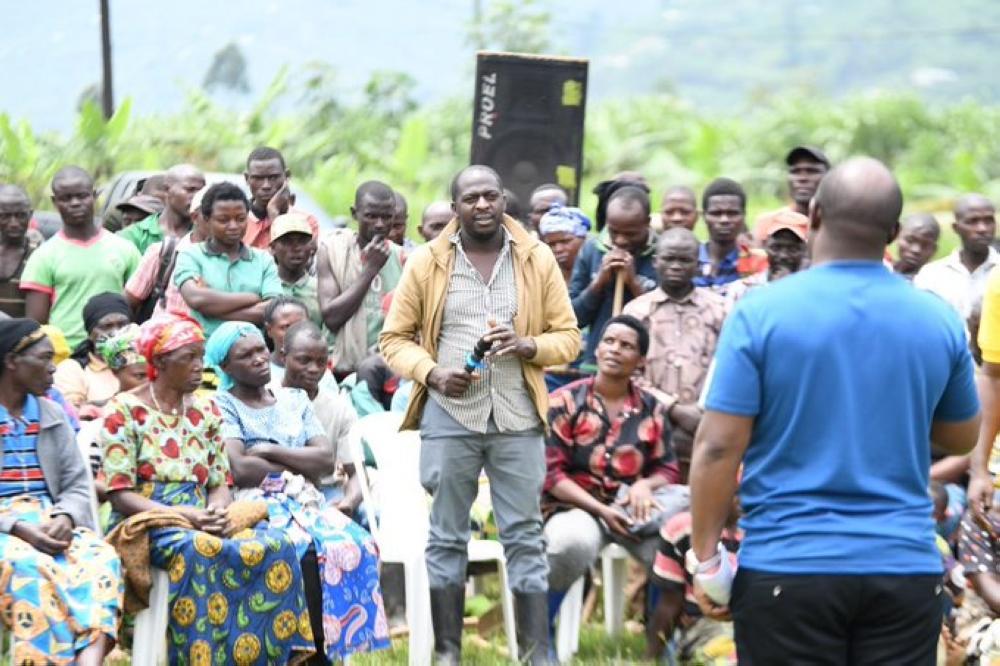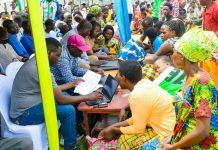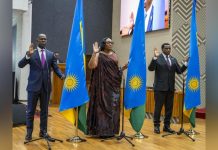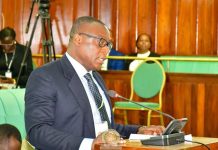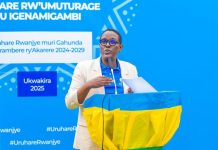Innocent Ndahiro
Africa-Press – Rwanda. Rwanda’s decentralization journey continues to reshape the relationship between citizens and governance, with community assemblies (inteko z’abaturage) emerging among the most influential instruments for participatory decision-making and accountability.
Introduced in 2000 under the decentralization policy, inteko z’abaturage provide a grassroots platform where citizens meet at the village (umudugudu) level to discuss local priorities, evaluate community projects, and interact directly with their leaders. Over time, the practice has evolved into a central pillar of Rwanda’s citizen-centred governance model, a system in which decision-making begins where citizens live.
One executive secretary in Gicumbi District described them as “the heartbeat of local democracy,” noting that they enable citizens to voice their priorities and contribute to solutions.
Citizens at centre of decision-making
Community assemblies are held every Tuesday and bring residents together to jointly identify challenges, propose solutions, and monitor progress on public programmes. The outcomes of these discussions inform local development plans and performance contracts (Imihigo), ensuring that public policies respond to the real needs of the population.
Citizens are not merely informed about government initiatives; they are active partners. Local leaders use the platform to share progress updates, gather community input, and mobilize collective action in support of national programmes such as community work (Umuganda), one cow per poor family (Girinka), and local infrastructure projects.
Data from Rwanda Governance Scorecard’s 12th edition shows that participation in decision-making scored more than 95%, highlighting strong citizen ownership of governance processes. This high level of engagement has strengthened transparency, improved service delivery, and fostered unity and social cohesion.
Accountability and social cohesion in action
Inteko z’Abaturage is also instrumental in enhancing accountability.
Leaders publicly present progress on activities, explain delays where necessary, and respond directly to citizens’ concerns. According to an impact assessment of decentralization in Rwanda over 25 years (2000–2025), 85.1% of citizens regard community assemblies as the most effective platform for holding local leaders accountable, followed by Imihigo, at 67.4%.
These gatherings also contributed to unity and reconciliation by promoting constructive dialogue and a culture of collective problem-solving. Evidence from Rwanda Reconciliation Barometer (2021) shows that mutual trust among Rwandans stands at 95.6%, reconciliation at 94.7%, and social cohesion at 97.1%, results that experts attribute in part to inclusive community engagement under decentralization.
Model of grassroots democracy
As Rwanda advances toward Vision 2050, the decentralization framework remains essential for building inclusive and sustainable development. Inteko z’Abaturage demonstrates what governance can achieve when built on citizen participation, trust, and dialogue. “Rwanda’s success in governance lies in its people’s involvement. When citizens discuss, decide, and act together, development becomes faster and more sustainable,” one local official noted.
By ensuring that every citizen has a voice in local affairs, community assemblies continue to shape the country’s transformation. They reaffirm that decentralization, when embraced by the people, is not merely an administrative reform; it is a pathway to lasting unity and accountability.
Challenges and way forward
Despite significant milestones, some gaps remain.
In certain communities, participation among youth, women, and people with disabilities is still limited. Additionally, the timing of meetings may disadvantage workers in both public and private sectors.
Experts recommend further strengthening inclusivity, improving facilitation skills for local leaders, and integrating digital tools to enhance citizen feedback.
Continued innovation, they argue, will ensure that inteko z’abaturage remain effective in an evolving society.
Source: The New Times
For More News And Analysis About Rwanda Follow Africa-Press

